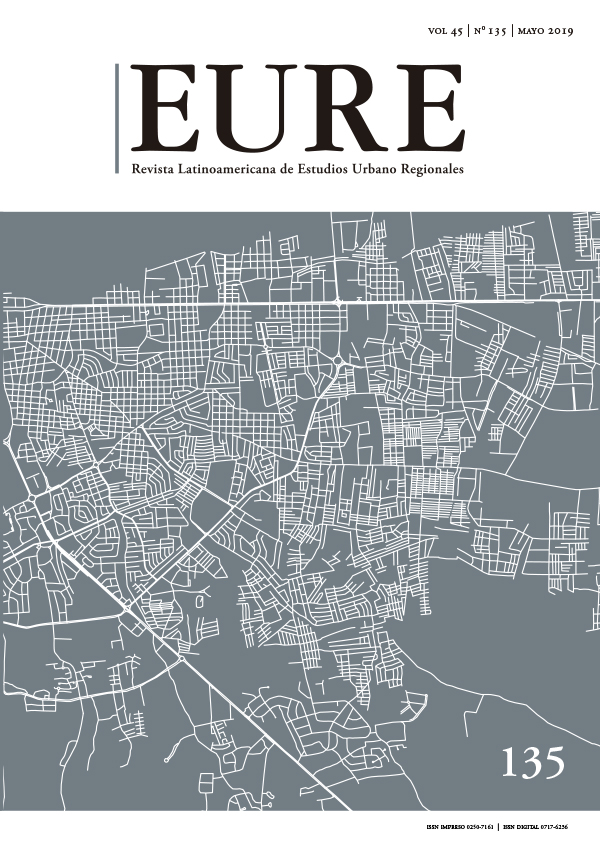The Politics of Poverty and the Government of Informal Settlements in Chile
DOI:
https://doi.org/10.4067/S0250-71612019000200049Keywords:
poverty, slums, urban sociologyAbstract
Informal settlements in Chile are understood as territorial concentrations of poverty. This understanding has shaped housing policy for informal settlements. However, despite the fact that poverty rates have reduced considerably in the country, informal settlements have not reduced as expected. Building upon FoucaultÍ€™s framework of governmentality, I examine the framing of poverty that has become taken-for-granted today. Through the examination of official state documents and presidential discourses, I trace the concepts used to describe informal settlements between the 1940s and the 1990s. The concept of poverty gains predominance during the military dictatorship (1973-1989) and consolidates as a framing to understand informal settlements only starting from the 1990s. This framing, that I refer to as Í€œthe politics of povertyÍ€ became instrumental to transform informal settlements into a governable population, from collective and political actions aimed to negotiate access to housing, to individual and de-politicized actions seeking government assistance. The implications of this transformation are discussed.Metrics
Downloads
Published
How to Cite
Issue
Section
License
Copyright (c) 2019 Revista EURE - Revista de Estudios Urbano Regionales

This work is licensed under a Creative Commons Attribution 4.0 International License.
Al momento de aceptar la publicación de sus artículos, los autores deberán formalizar la cesión de derechos de autor a EURE, según las condiciones establecidas por la Revista.
Ésta establece que el autor autoriza a EURE de manera gratuita, exclusiva e ilimitada a reproducir, editar, publicar, distribuir, publicitar, comercializar y traducir el artículo, a cualquier soporte conocido o por conocer y desarrollar.
Del mismo modo, los autores aseguran que el artículo propuesto es original, no publicado y no propuesto para tal fin a otro medio de difusión.


